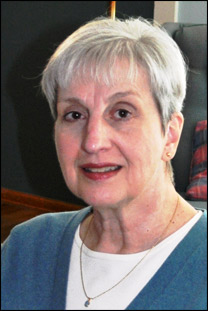|
Amid CU-Boulder's storied progress in leading-edge fields such as biotech and energy, the university's classics department (incorporating the study of ancient Greek and Latin, history and archaeology) garners fewer headlines — and fewer of the research grants and private gifts that could help the department thrive.
 |
| Mary McClanahan ('67, '69 AS) |
Yet while Mary McClanahan ('67, '69 AS) has had a successful 30-year career in managing computer services in support of scientific research, she credits her humanities education at CU-Boulder, where she earned a bachelor's degree in classical languages and a master's in Latin, for her career success.
"The classics are the very basis and foundation of our civilization, of how we think about things," she said.
To ensure the study of classics at CU-Boulder will endure and thrive, McClanahan has made a substantial estate commitment to establish the Mary McClanahan Endowed Fund in Classics. This fund will support graduate fellowships and faculty resources within the department; precise allocation will be at the department chair's discretion.
Though the exact amount will not be certain until the planned bequest is realized, this transformative gift could, for example, allow the department to offer a year of fellowship support to its top doctoral applicant each year, in perpetuity.
"We are thrilled by Mary's gift, which will have a huge impact on our ability both to attract the best graduate students and to train them well," said Peter Hunt, chair of the classics department.
McClanahan has studied Latin, Greek, Sanskrit and German, but spent much of her career working in other sorts of languages, the computer languages FORTRAN and COMPASS.
"Languages are languages are languages," she said about connections between her education and her work for the National Institute of Standards and Technology, where she was manager in charge of systems programming. "When you're writing computer programs, you're just writing in another language."
But McClanahan says she would not have been able to afford her CU-Boulder education without scholarships; she worked full-time during vacations and part-time during semesters. "Education is the most important thing there is."

|